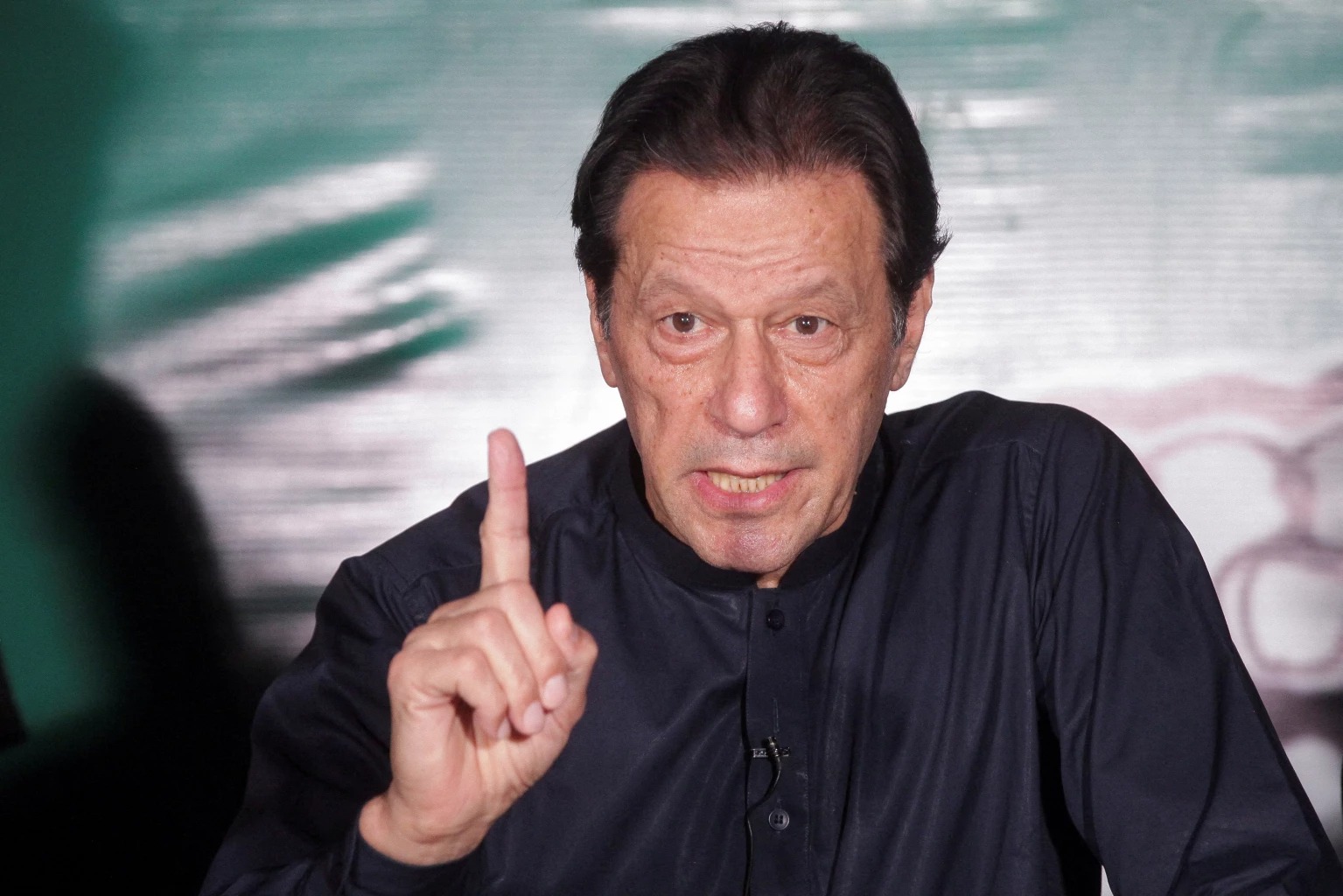In a significant turn of events, a Pakistani court has handed down a 14-year prison sentence to former Prime Minister Imran Khan and his wife on charges of corruption. This comes on the heels of another special court convicting Khan the day before for leaking state secrets, resulting in a 10-year prison term.
The charges against Khan and his wife relate to the alleged retention and sale of state gifts during Khan’s tenure as the prime minister.
The corruption case specifically accuses Khan and his wife of unlawfully keeping and profiting from state gifts, including jewelry and watches, while Khan was in power.

Former Pakistani Prime Minister Imran Khan (Credits: Nation Thailand)
The court’s decision also includes a disqualification for Khan from holding any public office for several years, a move that carries significant implications just ahead of the parliamentary elections scheduled for February 8.
This latest development unfolds within a broader context, as Khan and his wife were indicted three weeks prior on graft charges related to the retention of state gifts from Saudi Arabia’s government. The charges include accusations of unlawfully keeping valuable items, such as jewelry and watches, received from the Saudi government.
The court’s ruling marks another setback for Khan, who, along with his wife, pleaded not guilty when the charges were initially brought forward earlier in the month. The court proceedings took place at a facility in Rawalpindi, a garrison city where Khan briefly attended the hearing where the verdict was announced.
These legal challenges add to the political turbulence surrounding Khan and his party, Pakistan Tehreek-e-Insaf (PTI), as the country gears up for crucial parliamentary elections. The disqualification from holding public office and the imposition of prison sentences pose significant hurdles for Khan’s political career and raise questions about the future leadership dynamics in Pakistan.
The corruption allegations and subsequent court rulings have fueled public debate and scrutiny of Khan’s tenure as prime minister. Supporters argue that the charges are politically motivated and an attempt to undermine Khan’s credibility, while critics emphasize the importance of accountability and the rule of law, calling for a thorough investigation into the alleged corruption.
The timing of these legal proceedings, just ahead of the upcoming elections, intensifies the political implications. The disqualification from public office not only affects Khan’s personal political trajectory but also has broader implications for the PTI’s electoral prospects.
As Khan and his wife navigate these legal challenges, the political landscape in Pakistan remains fluid, with implications for the democratic process and the future direction of the country’s leadership.
The legal battles and their outcomes will undoubtedly shape the narrative leading up to the parliamentary elections, adding an extra layer of complexity to Pakistan’s already dynamic political environment.























